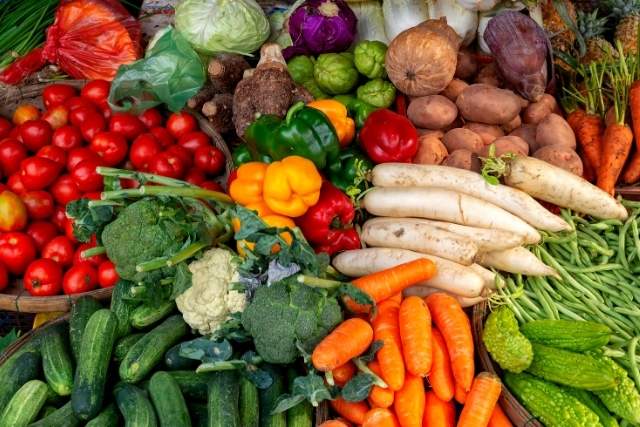Recent Posts
-

- Diabetes-Friendly Nutrition: Smart... 08.12.2024
-

- Nutrition for Chronic... 08.12.2024
-

- Anti-Inflammatory Diet: Food... 08.12.2024
-

- Low-Sodium and Heart-Healthy:... 08.12.2024
-

- Plant-Based Diets for... 08.12.2024
Beyond Organic: The True Meaning of Sustainable Vegetables

In your understanding and perspective, what do you mean by being sustainable? Is it being able to use less plastic and use more eco-friendly things? Is it being able to reuse clothes, items, etc., repeatedly? In the case of food, how do you define when food is sustainable?
Well, as we are different people with different perspectives in life, there’s a possibility that we will have different definitions of the word sustainable. And that’s acceptable. The most important thing is to have a common ground where everyone can accept it.
The concept of sustainable food extends beyond the food itself. It depends on several things, such as how the food is made, where it is sold, how it is transported, how it is stored, and how it is prepared and eaten. Food miles are an essential factor, often known as the distance that food has been transported. However, there is a great deal more nuance to consider than that.
The United Nations Organization (UN) refers to food sustainability as "the idea that something (such as agriculture, fishing, or even the preparation of food) is done in a way that does not waste any of our natural resources and can be continued without being detrimental to our environment or health."
When it comes to whether or not food can be produced sustainably, many additional aspects come into play, including the use of resources, the influence on the environment, and the farming of animals. As are concerns over social and economic consequences and health implications.
Participating in methods that promote sustainable agriculture can guarantee that your company or residence has a minimal effect on the surrounding environment. The goal of producing food sustainably is to prevent the depletion or waste of natural resources. It frequently involves consuming more local food, which means less food is carried across long distances, reducing the impact of climate change.
This indicates that sustainably grown veggies are the next step beyond organic produce. It takes into account a variety of parameters, some of which are listed below.
Methods Used in the Cultivation of Vegetables
Making a profit out of food production is essential. Farmers and producers would be out of a job if this weren't the case. However, this does not always imply that food production on a massive scale must be harmful to both animals and the environment. Sustainable farming aims to maintain the same production level or enhance it, all while maximizing the positive effects on the environment.
This kind of farming involves knowledge of the ecology around the land. This indicates that it will safeguard the native species of plants and animals while also satisfying the requirements of the farm and the production method it utilizes. Producing food in an organic and low-carbon manner is supported by sustainable agriculture. Additionally, it does not use synthetic pesticides, fertilizers, or any genetically modified organisms.
Impact on the Environment: Minimal
The goal of producing food sustainably is to prevent the depletion or waste of natural resources. Throughout the whole of the manufacturing process, it reduces the impact that it has on climate change to the lowest possible level. Utilization of the planet's limited resources is another factor that is considered. This covers the use of energy during the transit and storage processes.
Another factor is the influence on the local flora and animals, rivers, air quality, and sound quality. It is desirable to have as little negative influence as possible while simultaneously working toward producing food productively and economically.
Protecting the Wellbeing of Animals
Farmers that practice sustainable agriculture use methods of livestock management that are kind to the animals' health and well-being. They enable the animals to roam freely while also providing grazing for them in pastures. Only a few animals are held in a limited space, such as a cage or holding pen. This works together to guarantee that the animals are handled with kindness and consideration.
Protection of the General Population's Health
Food that is produced in a way that is both safe and healthful is considered sustainable. It is made without potentially harmful pesticides and chemicals, antibiotics that aren't necessary, or growth enhancement supplements. In defining sustainable foods, nutrition is also playing an increasingly important role. The consumption of meals derived from plants is becoming more popular. These foods often place more of a focus on natural foods and have less processed components than other types of meals.
Employment Policies as well as Support for the Community
Sustainable food companies provide their employees with a decent wage and safe, sanitary, and equitable working conditions. They provide support for the local and regional economies, creating employment and strengthening communities.
Disclaimer: The information provided in this article is for general information purposes only. All information in this article is sourced from other websites, and we do not represent any rights regarding the contents and information on the site. All rights belong to their original owner.
Sources:





